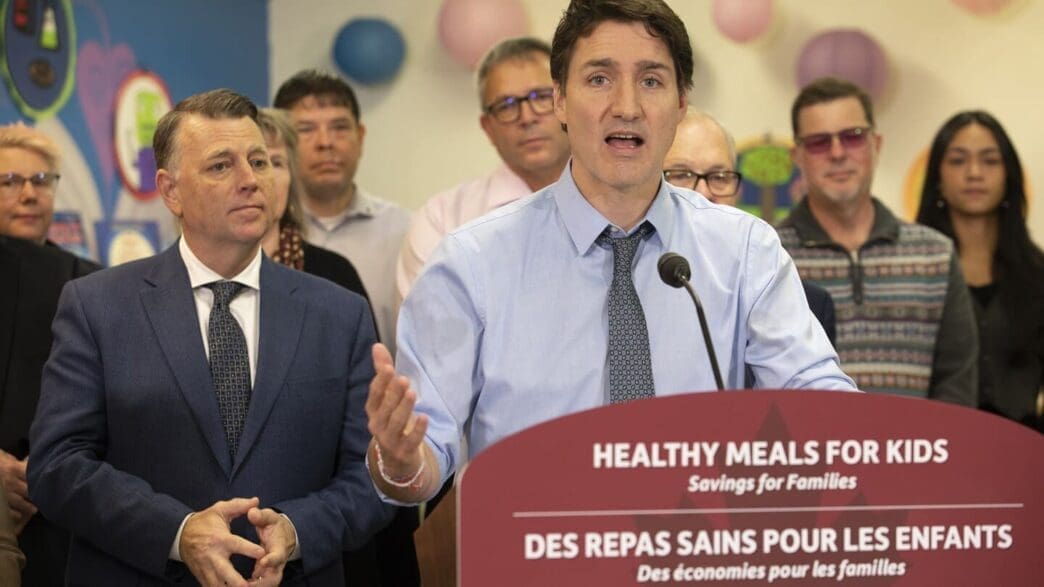Canadian Prime Minister Justin Trudeau has expressed concern over potential economic consequences if President-elect Donald Trump proceeds with proposed tariffs on Canadian imports.
In a recent statement, Trudeau highlighted that a move by Trump to impose a 25% tariff on products coming from Canada would likely increase costs for American consumers. He argued that while the intention might be to curb the influx of drugs and migrants—a rationale provided by Trump—the actual impact would extend to economic repercussions across the United States.
“It is important to understand that Donald Trump, when he makes statements like that, he plans on carrying them out,” Trudeau stated, emphasizing the seriousness of potential implications. This statement underscores the broader concern that rising costs could affect various sectors, including groceries—a key area Trump has promised to make more affordable during his campaign.
Moreover, Trudeau noted that the tariffs could jeopardize the North American trade agreement, a deal initially renegotiated under Trump’s administration and hailed as mutually beneficial for both nations. Trudeau insists that halting this progress could destabilize the economic gains achieved through cooperation and strategic dialogues.
As reported, Trump’s threats came amid broader discussions about border security and drug trafficking. While arrests and seizures at the Canadian border remain significantly lower compared to the U.S.-Mexico border, Trump has placed Canada in the same category as Mexico for these issues, which Canadian officials argue is an unfair comparison.
Canada, already the largest U.S. importer of steel, aluminum, and other critical minerals, is preparing for possible retaliatory measures. Senior Canadian officials are reportedly assessing potential targets for equivalent tariffs should Trump’s threats materialize, although no definitive actions have been announced.
Trudeau expressed his willingness to engage in “real constructive conversations” with Trump to resolve these differences, indicating hope for diplomatic solutions over escalated trade conflicts. Meanwhile, Mexico’s president expressed confidence that a tariff conflict could be avoided, reinforcing the importance of nuanced diplomatic efforts.
In the U.S., reactions from business groups and political figures underscore concerns about inflating prices and potential economic strain. Some legislators are considering measures to limit presidential power over tariff enactments, reflecting apprehension about unilateral decisions that could destabilize crucial supply chains.
Trade with Canada is a vital component of the U.S. economy, particularly for states heavily reliant on cross-border exchanges. With Canada accounting for 60% of U.S. crude oil imports and a significant share of the electricity supply, these economic ties illustrate the potential impact of disrupted trade relations.
The ongoing discourse between Canada and the United States highlights significant economic and diplomatic challenges. Trudeau’s comments underscore the potential repercussions of Trump’s tariff proposals, emphasizing the need for continued dialogue and considered decision-making to maintain beneficial trade relationships.
Source: Apnews








